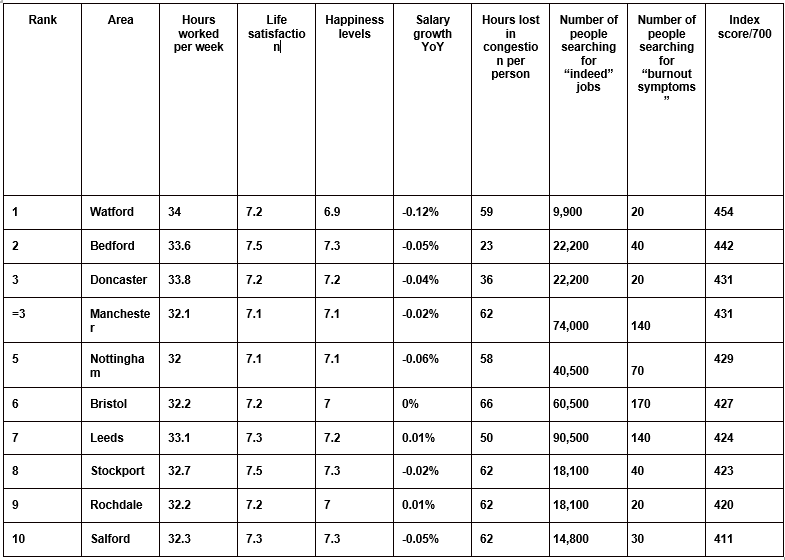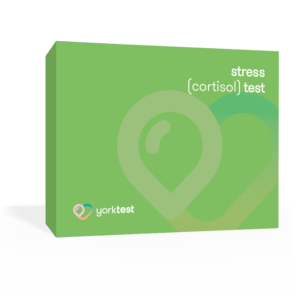It can begin with a lack of energy, before gradually becoming a long-term, constant feeling of exhaustion. Productivity can drop, you might struggle to fall asleep, and even start to feel more irritable – burnout can show its presence in our lives in many ways.
As the line between work and home life continues to be blurred following the aftermath of the pandemic, many people can become even more overwhelmed by the state of the news agenda. Not to mention the current cost-of-living crisis as unions continue to strike across the UK amid calls for pay increases.
Work-induced burnout can be caused by a number of factors, some controllable, some more difficult to influence. This can include the number of hours that you have to work each week, unrealistic deadlines, life satisfaction, reductions in staff and even the quality of your daily commute.
While stress is something that everyone can feel and experience, according to the NHS, having long-term periods of stress can lead to “a feeling of physical, mental and emotional exhaustion, often called burnout.â€
The NHS also describes some forms of burnout symptoms as:
- Feeling overwhelmed
- Being irritable
- Feeling constantly worried, anxious or scared
- Having trouble sleeping or feeling tired all the time
- Drinking or smoking more than usual
And according to Mind, workplace burnout is becoming more of a problem. A survey of 40,000 people in the UK found that the wellbeing of 41% of employees got worse during the pandemic.
Burnout can significantly affect your life, and it could be worth exploring if your stress hormones levels could be affecting your health with a cortisol test.
But where in the UK are workers feeling the most overwhelmed right now? And what location-based factors could be potentially impacting the burnout levels of workers across the UK?
The most burned out workers in the UK
Using seven different ranking factors, YorkTest has created an index looking at the areas of the UK struggling the most with burnout.
The defining factors in the index include:
- Average hours worked per week
- Life satisfaction according to the ONS
- Happiness levels according to the ONS
- Salary growth, year-on-year
- Hours lost in congestion per year
- Number of people searching for new jobs
- Number of people searching for burnout symptoms
Watford is home to the most burned-out workers

Just outside of London, Watford has been revealed as the area which is most likely to have the most burnt out workers per capita. Workers living in the borough in Hertfordshire are, on average, working for the longest period of time every week, and have also faced an annual salary drop of 0.12% when you consider inflation.
With each resident losing an average of 59 hours a year to traffic congestion in Watford too, traffic could also be a defining factor as workers have to spend more time before and after work in the rush hour, instead of doing things which could help them to alleviate their workplace stress.
This could include things as simple as spending more time with family, doing regular physical exercise, spending time meditating, or even just having the capacity to have an early night.
Bedford came second in the index, despite its higher score for life satisfaction. Almost a quarter of its relatively small population are regularly searching for job site “Indeed†each month, in a sign that workers are keen to move jobs due to potentially being unhappy with their work/life balance. This could also be due to their salary, reflected by a dip of 0.05% year-on-year.
Doncaster came in third, followed by larger cities Manchester and Nottingham. Mancunian workers in the Northern Powerhouse are also having to grapple with rising rent costs on top of salaries dropping. According to property website Rightmove, private rents have jumped by 23.4% per year.
The research found that it was more southern areas that appeared the least burned out according to the ranking factors, with Woking residents having the highest happiness score at 8.3 out of 10 – 1.4 points higher than Watford. Basildon also fared well, with just 15 hours lost per year to traffic, and a relative salary increase of 0.02%. Newport in Wales came in third from last, with the fewest people searching for new jobs on Indeed, despite its population of 133,000 being higher than 43 other towns and cities.
How to reduce burnout at work
Your stress levels can vary daily, and depending on the severity, your stress levels can even impact your physical health.
The good news is that there are steps you can take to help to optimise your mental health and reduce your stress levels:
- Acknowledge when you feel burnt out – If you’re facing feelings of exhaustion or burnout, it’s important to allow yourself to accept this as a first step to overcoming it.
- Identify what is increasing your stress – Often, work-based stress can build up over time, and it’s not until it’s accumulated to an overwhelming degree that you begin to seek help. It can be useful to help to identify the source of things that increase your stress levels, whether that is a professional trigger, or a relationship problem.
- Lighten the load if you can – Do you have a full-time job, plus a side hustle, and another time-consuming project? Or do you struggle to delegate work, and let people know when you’re overworked? If you’re feeling overwhelmed, speak to your manager about your workload, and evaluate your existing commitments to establish if there’s any way you can delay something to bring about immediate relief.
- Speak to people you trust – Burnout can be overwhelming, and if you’re struggling to find the source of your burnout, it may help to confide in a friend or family member who can offer perspective from an outsider’s perspective and help you to work out possible solutions.
- Spend time doing things you enjoy – Burnout can often dilute our passions for things, due to the lack of energy we have. Try and make time for an activity you enjoy each week to feel more like yourself.
- Take a cortisol test – Cortisol levels affect several aspects of our body and help us to regulate our stress levels and our body’s response to stress. Taking a stress (cortisol) test can help to detect whether your stress hormone levels could potentially be impacting your life, your immunity and your health.
If you’re struggling with burnout or feelings of exhaustion and need to speak to someone confidentially, Samaritans are available 24/7 to talk to about anything that is troubling you.
If you would like to find out your early morning cortisol level and understand more about this  stress hormone, consider a stress (cortisol) test with supportive guidance on how to make effective lifestyle changes.
Methodology
We found the most up-to-date Office of National Statistics (ONS) local authority data on the average hours worked per week, life satisfaction, happiness levels and salary growth, year-on-year.
Congestion data was taken from INRIX Global Traffic Scorecard for the local authority or the closest nearby to it, to understand how many hours per person is lost per year due to traffic.
YorkTest also used Google Keyword Planner to understand the searches per geographic area for Indeed jobs and burnout symptoms, before using population data from The Geographist to create a per capita search score.
Each factor was then given an index out of 100 to create an overall score out of 700.
Data correct as of 20 September 2022.













